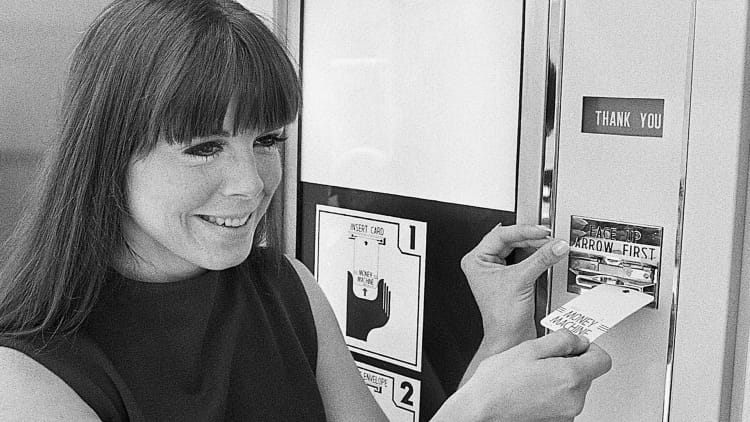Discover, which in addition to its credit cards, runs an online bank, announced Monday it will no longer charge any fees for its roughly 1 million banking customers.
Discover says it will no longer charge fees for insufficient funds, excessive withdrawals, falling below minimum balances and stop-payment requests on any of its checking, savings, money market and CD accounts.
"Removing all deposit account fees was an easy decision for us based on our commitment to offer the most rewarding banking products in the industry," Arijit Roy, vice president of deposits at Discover, said in a statement.
This latest announcement builds on Discover's already low-fee offerings. For example, Discover already offered checking customers an account that does not charge a monthly maintenance fee and offers 1% cash-back rewards on up to $3,000 in debit card purchases. Plus, Discover customers have access to 60,000 no-fee ATMs in the U.S.
Discover's savings accounts also don't have maintenance fees and offer 2.10% APY, which the company says is five times more than the national average.
Prior to Monday's announcement, Discover charged customers a $30 insufficient fund fee when they overdrew their checking or savings account. But Discover capped the number of fees assessed to just 1 per day, as opposed to other big banks who levy 3 to 4 of these per day.
Bank fees can add up
The fees you pay your bank may seem small, but they can make add up over time. In fact, checking accounts typically cost Americans almost $100 a year in fees, according to a Nerdwallet analysis of the Consumer Financial Protection Bureau's "Data Point: Checking Account Overdraft" report from 2014, the most recent data available. That can add up to almost $2,000 over the course of 20 years.
It's more likely you can avoid these fees if you use an online bank. MoneyRates found 63% of online checking accounts do not charge a monthly maintenance fee, compared to just 25% of accounts offered by brick-and-mortar banks.
Overall, banks charge an average of $13.58 per month in maintenance fees, according to a February 2019 survey by MoneyRates.com. ATM fees and overdraft charges also factor into those expenses.
Most banks offer free ATMs for their customers, but if you use an outside ATM you will likely get charged two fees, one by your bank and the other from the bank or company that runs the actual ATM machine you used. ATM fees charged by your bank average out to be $1.76, while the charges from the machine usage are $2.90, on average, according to MoneyRates.

Overdraft can be especially costly
While Discover already had a no overdraft policy in place, its announcement on Monday also eliminates a similar expense: insufficient fund fees. Both charges factor in as a nasty surprise when you overspend on your accounts.
Banks typically charge overdraft fees when you use your debit card and your account balance is $0. Instead of having your card declined, your bank will cover the difference and charge you an overdraft fee, usually around $30.
But what many consumers don't realize is that you can decline your bank's overdraft protection and you will not have to pay a fee. Instead your card will just be declined. You can only opt out of overdrafts on one-time transactions made with your debit card. So if you use checks, or if you have recurring payments set up and you go over your current checking balance, you may still be charged an insufficient funds fee.
It's worth noting that these fees alone brought in $34.5 billion in revenue for financial companies last year, according to financial research company Moebs Services. And these charges, unsurprisingly, are one of the most complained about bank fees. Roughly 1,200 customers have lodged complaints about overdraft policies to the Consumer Financial Protection Bureau's database so far this year.
Rep. Carolyn Bosher Maloney (D-N.Y.) and other Democrats want to change that. In 2017, Maloney introduced the Overdraft Protection Act. The legislation would require overdraft fees to be "reasonable and proportional," and would limit the number of overdrafts to once per month and a total of six on an annual basis.
The congresswoman said last month that she planned to reintroduce the bill. A press secretary for Maloney tells CNBC Make It that Maloney "hasn't introduced this legislation yet but plans to do so soon."
Don't miss: New federal rules aim to protect investors, but here's how to find a financial advisor who already does
Like this story? Subscribe to CNBC Make It on YouTube!



